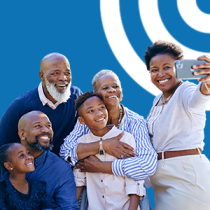Voting day is a wonderful celebration of democracy. Not only does it confirm our political rights, it also reminds us of how far we have come in terms of legal rights as well.
The national elections on May 8, will be our sixth since the first democratic elections in 1994. It was on this date that South Africans of all races were able to vote for the very first time, following the end of the apartheid system.
Legal Pillars of Voting
The Electoral Act 73 of 1998 is the instruction manual for elections. The IEC is the organisation responsible for making sure that we follow this law. The IEC makes sure that we have a voters’ roll. This is a list of all the people who are registered to vote. The IEC also has to makes sure there are suitable voting stations and that all material needed for voting, such as ballot papers and boxes, is provided. The law also explains how voting and counting officers must be appointed and how people observing the elections for fairness must be checked and selected. The law also explains how the final results must be calculated and how they must be declared to the public.
Did you know that women in South Africa have also had a separate fight for the right to vote? It was only in 1930 that a law, called the Women's Enfranchisement Act, gave the right to vote and the right to stand for election to all white women over the age of 21.
Who votes?
Luckily, we now live in a society that treats all with equality. Now, every South African citizen who is 18 or older may vote.
You must however have registered to vote in the area where you will be on voting day.
Did you know that since a Constitutional Court ruling in March 2004, even prisoners have the right to vote in our national and provincial elections?
Special Votes
Special votes are when the IEC makes arrangements for South Africans who cannot travel to voting stations on election day to still get to make their mark. This includes people who might be too physically ill to come out and vote, as well as the disabled or even pregnant women in some cases.
Public officials, like policemen and soldiers, can also apply for a special vote if they are working on election day.
Overseas Voting
Since 2014, even South Africans who are living outside of the country can vote in the national elections. If you live abroad, but previously registered in South Africa, you are still allowed to vote. You must however, still have the correct identity documents. In addition, you must submit a VEC10 form. This form notifies the IEC that you want to vote. The VEC10 must be submitted at least 15 days before the election date.
South Africans living overseas can vote at South African embassies, consulates and high commissions.
5 Steps to Voting
- On voting day, you must take along your green, bar-coded ID book, smartcard ID, or a valid Temporary Identity Certificate (TIC).
- At the voting station, election officials will scan in your ID barcode and mark your thumbnail.
- You will then receive two ballot papers. One paper is for the national election; the other is for the provincial election.
- You will then be taken to a private space where you can mark your ballot paper with your choice of political party.
- You will drop your ballot paper into a special box that will then be sealed until vote counting begins.
Code of Conduct
- Police and/or army personnel are sent to every voting station to make sure that you are kept safe and secure while casting your vote.
- No political party may be near voting stations, trying to win over or convince voters to choose them.
- There may not be any political posters displayed at a voting station.
- However, one person from each registered political party is allowed inside each station. They may wear their party colours, but they may not talk to voters in a way that tries to convince them to vote in a certain way.
- At the voting station there will be a person called a Registration Supervisor. Their job is to make sure that all the election rules and processes are followed according to the law.
- If a person breaks any of the laws around elections, they can be found guilty of a criminal offence. They might be fined or even sent to jail, for up to 10 years!
- One important law that all South Africans must follow is that you may not take a photograph of a marked ballot paper.
However all voters can take a selfie or a thumb selfie outside the voting station, and share it on social media in order to celebrate our democracy in action!
Counting and the Final Results
- Counting starts immediately after all voting stations close.
- Officials will unseal the ballot boxes and count the papers, sorting them out and recording the results on special pieces of paper.
- There are many different people who will watch and check to make sure that the counting process is fair and accurate.
- The IEC is the only organisation that is legally allowed to announce the final results.
- Anyone who believes there was a legal error in the results can object to the Electoral Court. This Court, which has the same power as a high court, will then decide whether to investigate further.
How can Legal&Tax help you?
If you think your democratic rights have been infringed, remember that Legal&Tax is your lifelong companion. We can advise you on what voting rights you have and what legal steps you can take to protect yourself and our democracy.


